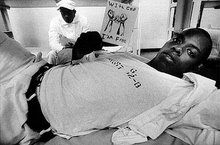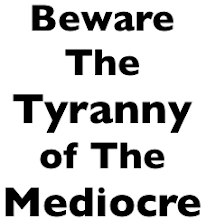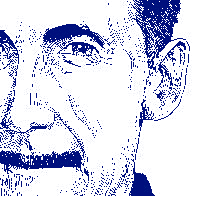
 Changes in diet over the past 50 years appear to be an important factor behind a significant rise in mental ill health in the UK, say two reports published today.
Changes in diet over the past 50 years appear to be an important factor behind a significant rise in mental ill health in the UK, say two reports published today.The Mental Health Foundation says scientific studies have clearly linked attention deficit disorder, depression, Alzheimer’s disease and schizophrenia to junk food and the absence of essential fats, vitamins and minerals in industrialised diets.
A further report, Changing Diets, Changing Minds, is also published today by Sustain, the organisation that campaigns for better food. It warns that the NHS bill for mental illness, at almost £100bn a year, will continue to rise unless the government focuses on diet and the brain in its food, farming, education and environment policies.
"Food can have an immediate and lasting effect on mental health and behaviour because of the way it affects the structure and function of the brain," Sustain’s report says. Its chairman, Tim Lang, said: "Mental health has been completely neglected by those working on food policy. If we don’t address it and change the way we farm and fish, we may lose the means to prevent much diet-related ill health."
















































































































5 comments:
Aside from bad food altering the chemistry in the brain, I think anyone studying the link between mental illness and diet also has to consider the cultural impact in America of being fat. All mental illnesses are not chemical, some are situational, and I believe that the negative focus on the appearance, rather than JUST the health of fat people leads to things like personality disorders. I was once told that if I lost weight, my mental health issues would go away, not by someone who is aware of brain chemistry, but by someone who was referring to the cultural bias against fat people based simply on aesthetics.
I am not negating the impact of bad food on the brain, but simply putting forward cultural biases against fat people as another possible contributing factor.
"All mental illnesses are not chemical, some are situational, and I believe that the negative focus on the appearance, rather than JUST the health of fat people leads to things like personality disorders."
Um.
Interesting Joanna.
When you say the "negative focus on the appearance" ... what do you mean exactly?
How should people respond to the appearance of being fat?
Should they effectuate a positive focus on the appearance" of fat people?
I ask because I believe people often project their own feelings and insecurities on other people.
Isn't it easier to be put off with others for not "accepting" one's appearance than it is to be put off with one's self for not liking one's own appearance?
Not trying to reduce the ugliness of prejudice ... however I am not ready to declare ALL cultural bias a bad thing.
The fear of cultural bias is one of the motivating factors people had to maintain their weight.
If we act like it's all good ... If we all act like Gabourey Sidibe is just another cute talented young actor ... who happens to be 200 pounds overweight ... are we doing the dangerously obese a favor?
I am not saying that fat people should not be encouraged to lose weight for health reasons. I AM saying that telling a child he/she is worthless because they are fat is not helpful. Ostracizing a person because of their weight does not encourage them to become healthier, it simply breaks them down. From my own personal experience, at 11 years old, I was told that I was fat and disgusting and would amount to nothing for that reason. I was assaulted in school physically and mentally. I was mocked and spat at. Did any of this encourage me to lose weight? Absolutely not. At 11 years old I was 5'2", 140 pounds with the body of a grown woman. For that I was tortured. By the time I was 13, I was still 5'2" and weighed 250 pounds, because food became my refuge. Ostracizing and mocking fat people makes fatter people. And it causes serious mental health issues that last a lifetime.
Am I saying we should ENCOURAGE people to be fat?? Hell, no! But there is a HUGE difference between expressing helpful concern for someone's weight and tormenting them because of it.
In reading the comments about the physical appearance whether it be 'fat' or "too black" or just not having the so called beauty features sanctioned by cosopolitan magazines and others reminds me of the movie "Shallow Hal"which was a great example of how individuals are viewed and what they perceive as "beauty and ugly".When you really see the"person" it could change your whole perception of what is attractive. True "fat" is an easy pick on as well as some other physical qualities not considered acceptable but the effects of poisoning the mental state of a person and the sometimes deadly consequences as in the case of this tragedy, we can attribute ths insanity to her relentless self-esteem attacks and her chemical diet as the root cause. Samoans are "huge people" but they are mentally stable and their diet excludes fast food and chemical additives.
Brother eating Fast food or more like CLONED food!??!
Might make you retarded.
Just in case you are wondering, this information was pulled directly from the the FDA official website.
Please feel free to read the whole thing yourself as I have only posted the information that I found interesting.
This may make you think twice, if not three times about what your really eating from your neighborhood chicken shack to fancy restaurants and even grocery stores.
III. Animal feed derived from clones of any species traditionally consumed as food or feed
No animal feed risks unique to clones were identified in the Risk Assessment. FDA therefore does not have recommendations for any additional measures related to the use of clones of any age or species for the production of feed for animals that are based on the fact that the animals are derived from cloning. This conclusion applies to rendered products from any clones and the use of milk from clones for animal feed.
IV. Human food derived from clones of cattle, swine, sheep, and goats
No unique risks for human food consumption were identified in cattle, swine, or goat clones derived via SCNT. No anomalies have been observed in animals produced by cloning that are not also observed in animals produced by other assisted reproductive technologies (ARTs) and natural mating. The frequency of those anomalies, however, is increased over other ARTs and natural mating. As was the case with other ARTs, the success rate is improving over time. Further, the results of the Risk Assessment have clearly indicated that cloning falls on the continuum of assisted reproductive technologies (ARTs).
Following extensive review, the Risk Assessment did not identify any unique risks for human food from cattle, swine, or goat clones, and concluded that there is sufficient information to determine that food from cattle, swine, and goat clones is as safe to eat as that from their more conventionally-bred counterparts. Because of these reasons, and because food from clones would be subject to the same requirements as food from their conventionally bred counterparts, we do not believe that meat or milk from cattle, swine, and goat clones would require any additional controls compared with meat or milk from cattle, swine, or goats currently entering the food supply today.
As stated in the Risk Assessment, insufficient information was available on sheep clones to make a decision on food consumption risks and assessments were not conducted for animals other than cattle, swine, goat, and sheep. Therefore, at this time, the agency continues to recommend that edible products from clones from animals other than cattle, swine, or goat (e.g., sheep) not be introduced into the human food supply.
V. Animal feed and human food derived from clone progeny of any species traditionally consumed as food or feed
FDA anticipates that most of the food products from SCNT technology will be derived from clone progeny, the sexually-reproduced offspring of clones, rather than from the clones themselves. Based on our evaluation, which included empirical evaluations, a careful assessment of the literature, and congruence with biological assumptions, we agree with the findings of the National Academies of Science (NAS 2002) that there are no human food or animal feed risks associated with the progeny of any clone of a species traditionally consumed for food that are not present in other sexually-reproduced animals of the same species. Therefore, the agency believes that food products from progeny of a clone from any species currently consumed as food are suitable to enter the food and feed supply under the same controls as applied to any animal that is the product of sexual reproduction. FDA does not have recommendations for any additional measures related to the use of the progeny of clones for the production of food for humans or feed for animals based on the fact that these are progeny of clones.
Post a Comment